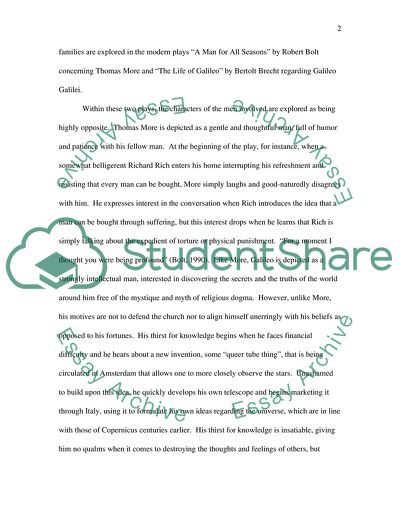A Comparison of Thomas More and Galileo Essay Example | Topics and Well Written Essays - 1500 words. https://studentshare.org/literature/1709462-compare-contrast-thomas-more-galileo
A Comparison of Thomas More and Galileo Essay Example | Topics and Well Written Essays - 1500 Words. https://studentshare.org/literature/1709462-compare-contrast-thomas-more-galileo.


